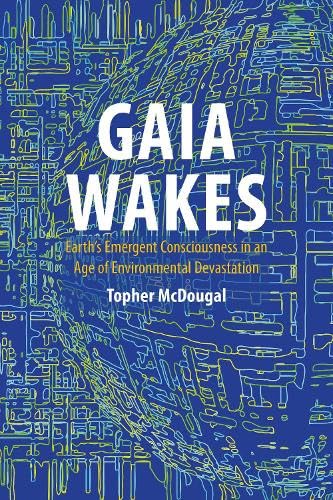The climate crisis is upon us, and environmental collapse is inevitable. The planet is on the cusp of its fifth evolutionary transition that will lead to the emergence of a planetary brain and mind. In Gaia Wakes, Topher McDougal draws a compelling link between the emergence of this consciousness and environmental exploitation. He outlines the economic, ecological, and technological mechanisms that may propel this shift. In the rise of Gaia consciousness, humans will serve as intermediaries between advanced Artificial Intelligence (AI) and the Earth’s biotic systems.
I approached the book from my interest in futurisms that involve a return to Indigenous knowledge and values.McDougal’s speculative exploration is rooted in his study of economics, ecology, evolutionary biology, and technology. Readers can follow his logic to imagine how AI can enable the development of a conscious, self-regulating biosphere.
I was also drawn to McDougal’s integration of the concept of rewilding as a forward-looking process involving technology, Indigenous knowledge, and human cultural transformation. Rewilding, in this context, refers to the restoration of natural ecosystems and the re-indigenization of human societies. When Gaia Wakes, humans—rewilded and re-Indigenized—will serve as stewards who maintain ecological balance. The book is at once dystopian and hopeful in its provocative proposal to decenter humanity’s role in the future of the planet.
Editor's Note: This review was originally published in Seattle Book Review.
